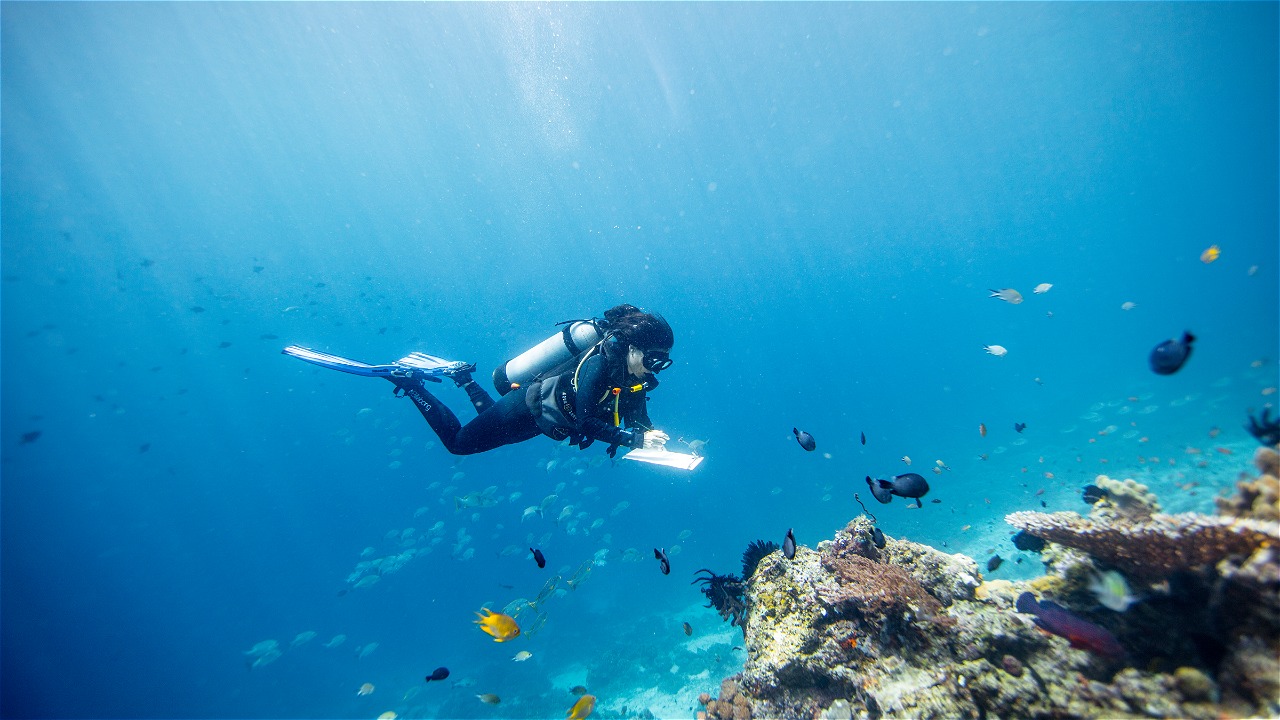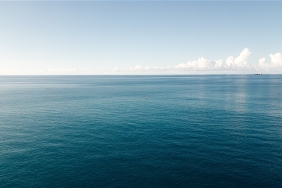WWF-INDONESIA RELEASES LIVING BLUE PLANET REPORT 2015
By: Ciptanti Putri
In a series of 53rd anniversary celebrations, WWF-Indonesia last Wednesday (16/9) released a report on marine ecological conditions, "Living Blue Planet Report". The report was socialized to the media, marine industry players, as well as corporate partners who have supported the efforts made by the oldest conservation organization in Indonesia in a simple and intimate dialogue about the condition of Indonesia's maritime in a hotel ballroom in Sudirman, Jakarta. Present as resource persons in the morning discussion were Suseno Sukoyono, Staff of the Indonesian Minister of Maritime Affairs for Community and Institutional Affairs, Dr. Efransjah, CEO of WWF-Indonesia, and Poernomo Siswo Prasetijo, CEO/President of Pacific Asia Travel Association (PATA) Indonesia Chapter.
In the first opportunity, Suseno explained a number of programs carried out by his party in order to maintain and preserve the nation's assets, which he said have not been widely used by the Indonesian people. "Behind all the issues related to the sea in Indonesia, there is an economic motive behind it. Human activities that do not consider ecological impacts are the cause of climate change that damages our marine assets. People need to be made aware that we only have one ocean. Action to save the marine ecosystem is very important to save all Indonesian people. Currently, the government is aggressively taking firm action against those who violate the rules in the Indonesian sea area." Suseno directly appreciated the well-established cooperation between his office and WWF-Indonesia in realizing the concept of blue economy. "The Ministry of Maritime Affairs and Fisheries is grateful that WWF-Indonesia consistently conducts research on marine ecosystems in Indonesia."
One of the results of the Living Planet Report research in 2014 stated that by 2050 coral reefs could be extinct due to the rate of climate change. This is despite the fact that 25% of the world's marine species population and 850 million people depend on the economic, cultural and social services provided by coral reefs. Indonesia, as one of the countries in the Coral Triangle region, which has the richest marine ecosystems in the world, will be severely impacted. However, this year's Living Blue Planet Report states that the condition of the ocean and its resources, which have allegedly declined in recent decades, can be improved and restored to a level of sustainability capable of sustaining human life.
Dr. Efransjah said that in addition to routinely conducting research on marine ecosystems and all biota in it, WWF also continues to educate people at various levels to be aware of being wise in exploiting marine wealth. "We run various campaigns related to seafood consumption, invite marine industry players to join Seafood Savers, and raise Best Management Practice in the marine sector so that the sea gets enough time to repair itself."
In the third session, Poernomo Siswo Prasetijo explained that Indonesia's potential to become a marine tourism destination is very high but has not been maximally utilized by domestic tourism service players. He mentioned that in 2014 data, the tourism industry contributed Rp140 trillion in divisions and provided employment for 11 million people. "It can be assumed that an average foreign tourist spends US$1,000 - US$1,500 per day while on vacation. Unfortunately, we cannot get the exact figure of the industry's revenue contribution to Indonesia because the airline, hotel, and tour operator businesses are still foreign-based so that the profits are absorbed outside." Poernomo said that his party needs support from the government as well as guidance from WWF-Indonesia so that in its operations it continues to be in the right corridor and does not damage the nation's assets which are precisely the business objects of the marine tourism industry.
That day also released an initiation of the ""Signing Blue"" program as an innovation and a forum for tourism service providers and tourists to play a real role in protecting natural resources. This program encourages the government, business people, and the community to utilize and secure marine assets so that a responsible tourism system is realized. On this occasion, three marine tourism industry players signed a memorandum of understanding as a form of commitment to join this program, namely by Poernomo Siswo Prasetijo as CEO / President of Pata Indonesia Chapter, Brahmantya Sakti as Director of PT Jalan Terus Indonesia (Triptus.com), and Fatyhah Suryani Mile as Director of Wallacea Jalasveva Lestari.
The day's event was closed with the cutting of WWF-Indonesia's 53rd birthday cake. Pieces of cake were distributed to a number of WWF-Indonesia's corporate partners, namely from HSBC, BCA, and Hino Indonesia, to some of WWF-Indonesia's loyal supporters, as well as to the media crew who have been helping to disseminate information about the conservation work pursued by WWF-Indonesia./div>





